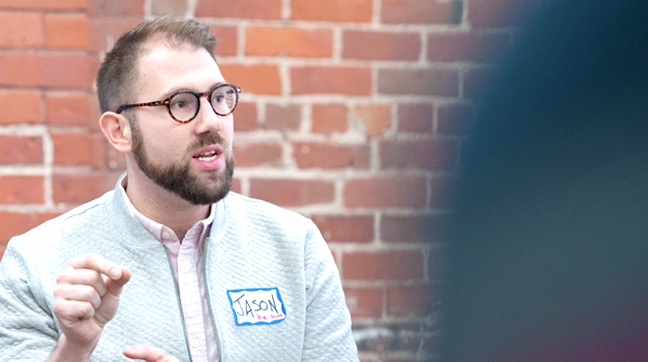The first time I learned of Dr. Nadine Burke Harris was three years ago when I watched her TED talk on the impacts of childhood trauma, and I was floored. I had never heard such a clear and compelling presentation of the ways trauma can affect the emotional and physical wellbeing of children. I am indebted to her research; yet, I was immediately aware that there was not a link between trauma and the impacts of racism and racialized violence on childhood development.
So that’s where we wanted to begin. At The Discovery Center, we know that the educational system--like all systems in this country--have traditionally been oppressive and exclusionary to Black and Brown people. We know that a focus on racial equity and a commitment to anti-racism is essential. Without it, the systems will continue to produce traditional results. For example: Black girls are being suspended at a rate 6x that of their white peers--and it’s not because they commit more in-school offenses. This alarming statistic is a direct result of the internal biases and prejudices that have shaped our classrooms and learning institutions.
One strategy to address this is by hosting consciousness-raising opportunities. For the last three years, The Discovery Center has partnered with Everyday Democracy and the Connecticut Nonprofit Alliance to host a Stand Against Racism Event, as part of the YWCA’s national Stand Against Racism programming.
On April 27, we hosted an event called “Violence, Trauma, and Safety: How Should We Respond to the Impact of Racism on Girls of Color?” Our role was simple: to create space for advocates, educators, and community members to explore the issue together and brainstorm solutions.
There’s a growing body of research around adverse childhood experiences and an understanding of trauma-informed response. There’s also a growing independent body of research around the impacts of racism and sexism on young people, but these two worlds are not yet bridged. In thinking about our role as non-profit folks--who are typically white and often working with Black and Brown communities--we must constantly elevate our understanding of trauma and the intersection of racism and sexism in our work.
I believe that I have unique role in this work as a white man; it’s often my responsibility to talk to white people about racism/whiteness and to men about toxic masculinity. During our event, which helped people reexamine the school pushout rate (a helpful way to reframe the notion of school dropout) my role was to set the stage and then step back so that those in the room with lived experiences of racism and sexism could lead the conversations and drive the innovation.
The event was designed for people to reflect and strategize, and to consider how to take what we’ve learned and put it back into our work. We wanted to really give space for people to explore their feelings and beliefs about who they are and how that impacts their work. We are strong believers that the ‘doing’ flows from the ‘being.’ So, much of our work is focused on the internal process of understanding our own experiences of privilege and oppression. We know that if we can be fully immersed in why we do the work, it helps inform how we do the work.
So that’s the goal: we’re creating opportunities for people to do their work better. We want folks to really interrogate what they believe and the ways we are all socialized into systems of oppressions. We are long-overdue for a more nuanced response to trauma, and are grateful for the work that’s already being done; however, an understanding of trauma is not complete if it neglects to consider the impacts of racism as traumatic. Racism, like all forms of oppression, is a durable and well-designed system; and, it can be redesigned! We must all commit to interrupting, resisting, and transforming the pervasive hold that racism has within education and on all aspects of society.
 William Caspar Graustein Memorial Fund
William Caspar Graustein Memorial Fund
